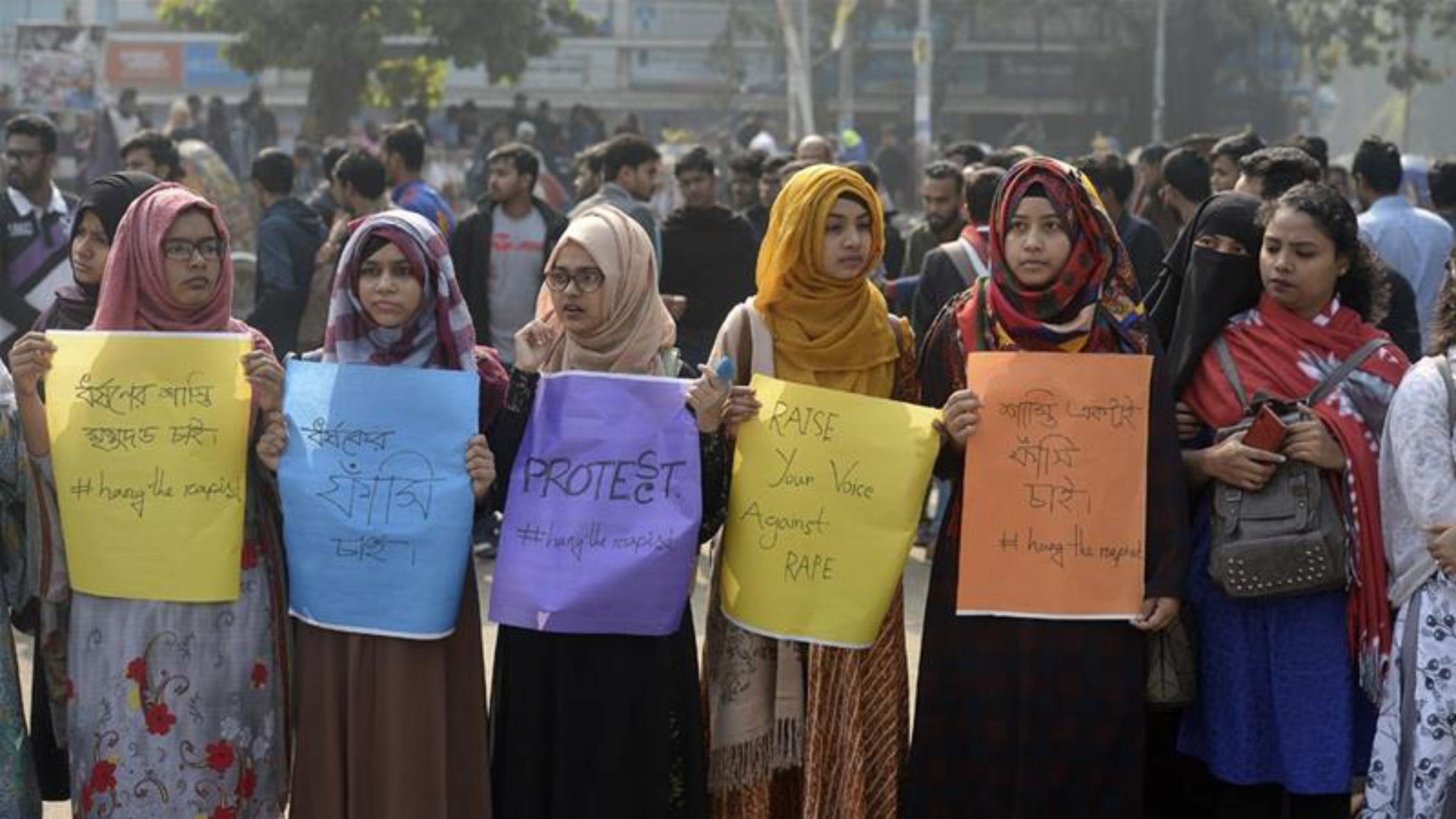Respecting boundaries and holding men responsible

A lot of Bangladeshis seem to have cats these days, so I hope my readers will follow this analogy. One of my cats was meowing loudly the other day, so I stooped down to pick him up. But he did not want to be held at that moment, and after eluding my grip, he nipped me in the ankle.
I have to hand it to cats: if they don't want to be touched, they let you know, and you ignore their message at your peril.
I do sometimes wish that we could use cats as trainers for men in terms of learning to respect boundaries. The same activity may be acceptable at one time but not another. It may be initially acceptable and then no longer so. It may never be acceptable. And here's a simple shortcut: no means no. Not just a loud, booming no. Women are taught to be soft-spoken, and when intimidated it can be difficult to speak at all. Even some men, when faced with unwanted sexual advances, find themselves freezing up. It's a normal human response. That is why the new standard for consent isn't simply the absence of a no, but the presence of a clear yes. If the woman has not clearly agreed to the activity, then the activity is a violation. Period.
Oh, and intoxication is no excuse. Even if the woman is not in her senses, she cannot give consent, any more than a minor could. If the man is not sober, he is still responsible, as the aggressor, for his behaviour. If you don't like the rules, don't play the game.
Just to be clear, there are different types of sexual harassment and violence, from unwanted words to forced physical contact. None of them are okay. They are harmful for women, leading to emotional and health problems, and can have lasting negative consequences. This is why HealthBridge currently has a project in Dhaka which, among other things, seeks to assist survivors of sexual and gender-based violence to find appropriate support.
Much as we might like to believe otherwise, sexual violence is a societal rather than an individual problem. We as a society send messages that reinforce behaviours that lead to sexual violence—things like blaming women for the way they dress or where they go, rather than blaming men for their behaviour. The very term "violence against women" distracts from the people committing that violence.
I wish none of this had to be said. I wish we lived in a society—or rather, given how widespread sexual assault is, a world—where people simply respected each other and did not engage in acts of violence against each other. I wish we lived in a world where the perpetrator, not the survivor, was blamed for their actions.
In a book about rape in the United States, titled Not That Bad: Dispatches from Rape Culture, a rape survivor says that her friend asked her (I'm paraphrasing), "What would the guy have had to do for you to feel that you could treat him like he treated you?" Indeed.
Just as a moment of carelessness while crossing the street shouldn't lead to death, so too the consequence for behaving, what some may consider, "inappropriately" must not be rape or other form of sexual assault. Regardless of how a woman dresses, or if you find it appropriate or not, it is certainly possible to refrain from making nasty remarks or, worse, grabbing or assaulting a woman. Anyone who tells you otherwise is simply insulting men.
Given how uncooperative cats are, it's unlikely that we can enlist them in this campaign. But every time we reach down to pet a cat who isn't interested, let's retain the clear reminder that respecting boundaries is important. And while we are at it, let's work together to change the way we talk about sexual assault—and for heaven's sake, stop blaming women for the actions of men.
Debra Efroymson is senior adviser to the Canadian NGO HealthBridge and executive director of the Institute of Wellbeing, Bangladesh.
Views expressed in this article are the authors' own.
Follow The Daily Star Opinion on Facebook for the latest opinions, commentaries and analyses by experts and professionals. To contribute your article or letter to The Daily Star Opinion, see our guidelines for submission.




 For all latest news, follow The Daily Star's Google News channel.
For all latest news, follow The Daily Star's Google News channel. 


Comments